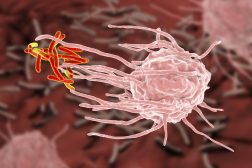Definition
noun, plural: skins
(anatomy) The external membranous integument of the body; the outer protective covering of (the body of) an organism
verb
(1) To strip off or remove skin from, as to skin an animal
(2) To cover with (or as if) with skin, as to cover superficially
(3) To bruise or injure the skin of
Supplement
The skin is the outermost protective covering of an organism. In most animals, it is the tissue that covers their body and protects them from external factors (e.g. UV radiation, temperature, infectious agents). The skins of the animals vary greatly. For example, fish and certain reptiles have scales on the skin whereas birds have feathers. Other animals have fur that provides them insulation or a means for camouflage. In plants, the skin pertains to the integumentary covering, surface layer or outer casing such as the bark or husk of a plant and the exterior coat (peel) of fruits and vegetables.
In humans, the skin is the largest organ of the integumentary system. The role of the skin is vital as it protects the body (especially the underlying tissues) against pathogens and excessive water loss. It is also involved in providing insulation, temperature regulation and sensation. The skin of humans and other mammals is composed of two major layers: (1) epidermis and (2) dermis. The epidermis is the outer, waterproofed layer of the skin and the dermis is the layer below the epidermis. In between the two layers is a thin sheet of fibers called the basement membrane. The thinnest skin of the human body is around the eyes (i.e. eyelids and the skin under the eyes). The thickest skin is the palms and the soles of the feet.
See also:
Related term(s):








